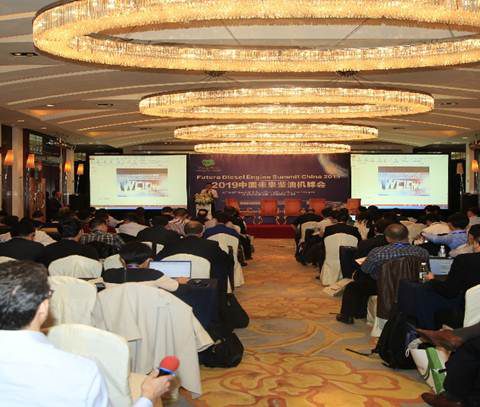The third India Diesel Powertrain Summit in June 2020
The third India Diesel Powertrain Summit 2020 is scheduled on June 17-18 in Chennai, India. The event will be dedicated to providing the next 5-10 years of policy direction and supporting localized technological innovation as well as exploiting the market opportunities in India and other South Asian countries. It is also the best platform in […]

The third India Diesel Powertrain Summit 2020 is scheduled on June 17-18 in Chennai, India. The event will be dedicated to providing the next 5-10 years of policy direction and supporting localized technological innovation as well as exploiting the market opportunities in India and other South Asian countries.
It is also the best platform in order to communicate on international projects with government officials, powertrain & OEMs, industry leaders and experts.

Brand-new emission norms
Starting from the first date of April and Oct. 2020, BS VI and TREM IV norms will be implemented. Therefore, in compliance with these stringent emission norms, passenger cars, commercial vehicles, non-road mobile machinery and powertrain manufacturers and so on need to strengthen R&D update on not only the fuel saving and emission reduction technologies, but also alternative fuels and even electrified powertrain instead of ICE.
A HARVESTING APPLICATION BY VOLVO PENTA IN INDIA
India Diesel Powertrain Summit, institutions and companies involved
Government officials from Ministry of Road Transport & Highways, Central Pollution Control Board, Bureau of Energy Efficiency, Society of Indian Automobile Manufacturers etc. are supposed to give a talk on Environmental supervision, Type Approval of BS VI, TREM IV and Stage II CAFÉ norms, Future Trends of South Asia diesel powertrain market etc.
UFI FILTERS: NEW PRODUCTION SITE IN INDIA
Also, all the industry leading companies like Cummins, Deutz, Maruti Suzuki, Hyundai Motor, Mahindra, Tata Motors, Toyota, Ashok Leyland, JCB, Tata Hitachi, ACE, Tafe and others will share their latest LNG, diesel electrification, hybrid, hydrogen fuel cell technologies, as well as challenges and solutions for fuel economy Stage II limits together with SCR, EGR, DPF and common rail fuel systems or turbocharging technologies.











